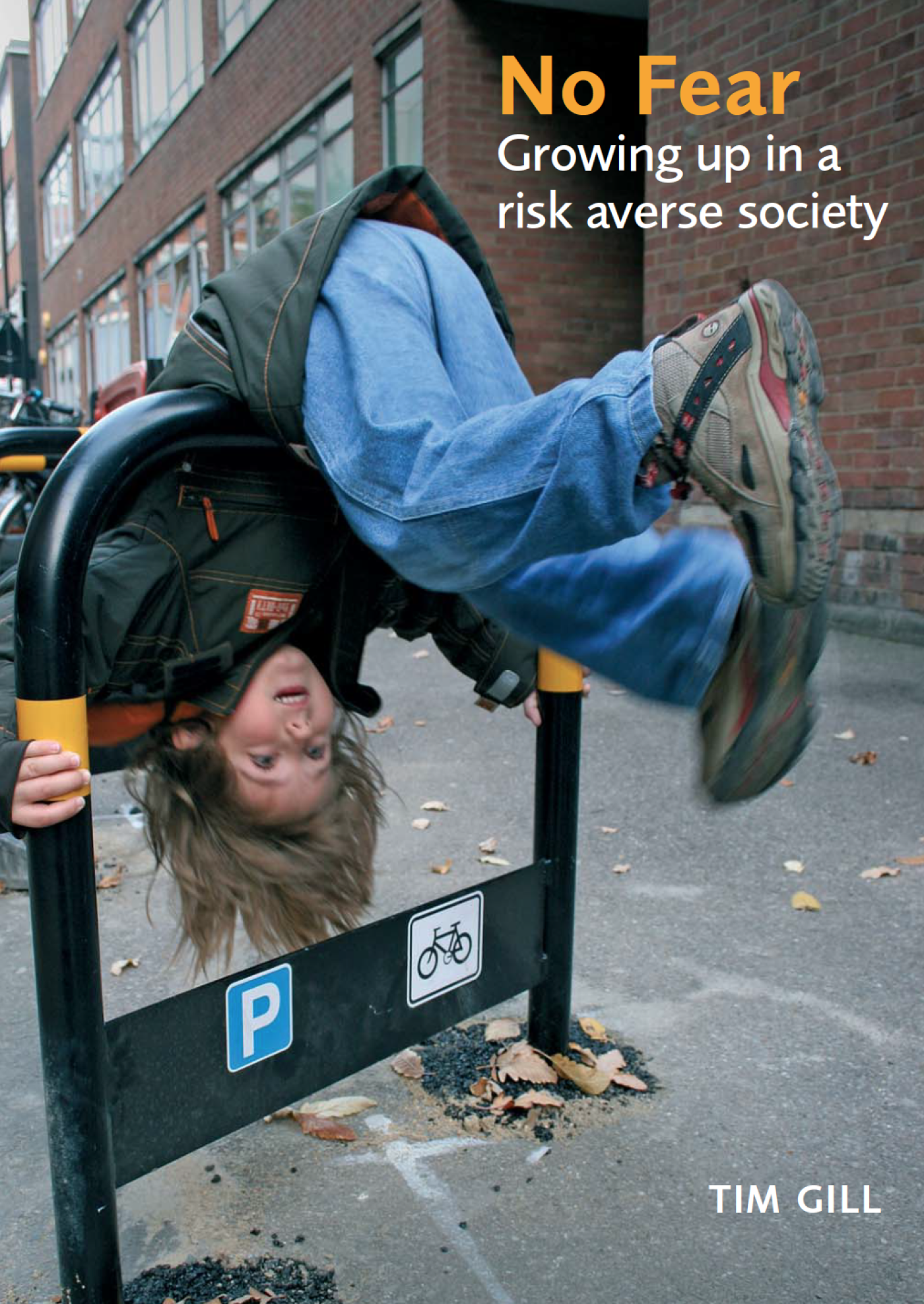No Fear. Growing up in a risk averse society - Tim Gill
This report, focusing on the freedoms children enjoy and how those have been diminished, maintains that tradition. Working with Tim Gill, one of Britain’s foremost experts in child play, the report takes a robust but responsible approach to risk in childhood. Nor is play new for us: the Foundation once funded the Children’s Play Council (then headed by Tim Gill) to promote child-friendly streets. The project was the first step in CPC’s campaign for home zones that led in time to a £30 million government programme and the hundred or so schemes that now exist across the UK. Then as now, our starting position was that young people need both safeguards and opportunities. But our current concern is that through society misreading risk children face a myriad of restrictions that are intended to support them, whether imposed by zealous parents, by policy or by those interpreting it. We do not retreat from our advocacy of child protection but we recognise that keeping children safe conversely involves them in taking risks so that they can learn how to assess and respond to them; children will never understand risk if society prevents them from experiencing it.
Gill argues that the concern about health and safety does not reflect the real level of risk and that the probability of adverse incidents is as important as the seriousness of their consequences. For instance, children are no more likely to be abducted or murdered by predators today than they were 30 years ago; the problem is that many parents do not know that. It will come as a surprise to many that fewer than one in ten children aged seven or eight today go to school on their own; in 1971 80 per cent did so. The average age at which children are allowed to visit a shop or a friend unaccompanied by an adult has risen by three years over the same period from seven to ten. And these restrictions on children’s freedoms are not just a consequence of the growth in car use; they also reflect changes in attitude to risk in society.
- Andrew Barnett -


